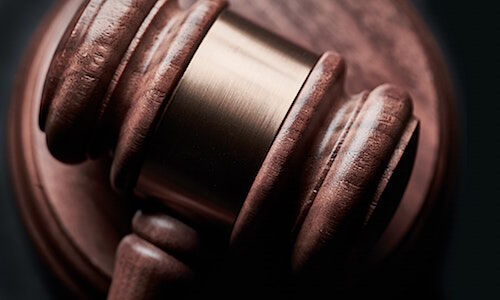Hong Kong Bar Association Flags Worrying Uncertainties
The Hong Kong Bar Association issued a statement expressing its concerns about legal validity, consistency and ambiguity following last week’s move by Beijing to push for security legislation in the autonomous city.
The Hong Kong Bar Association (HKBA) – a body representing more than 1,500 practicing barristers – said the move to push for security legislation in Hong Kong «discloses a number of worrying and problematic features», in a statement issued yesterday.
In addition to the potential legal conundrums from the contents of the new legislation, the HKBA also underlined its concerns about the mechanism with which the law is being established. Hong Kong’s top officials have already publicly backed Beijing’s call to enact the law while traditional due process through the local legislature has yet to occur.
«No Power»
In 2003, the Hong Kong government had already once attempted to pass through controversial security law – «Article 23» – resulting in mass protests from hundreds of thousands due to fears about the loss of freedoms and its eventual shelving.
According to the HKBA, matters considered by newly proposed legislation are already covered by Article 23 and the enactment of this law falls within the remit of Hong Kong’s autonomy. This would, therefore, require due process through Hong Kong's legislature which has been inconsistent with calls by Beijing for enactment.
«In that regard […] the Legislative Council of the HKSAR 'shall be the legislature of the [HKSAR]’,» HKBA said, adding that the Standing Committee of the National People's Congress (NPCSC) has «no power» to push for the national security law itself.
Compliance with United Nations Rules
The HKBA also noted that «there is no assurance that the «HK National Security Law» as proposed will, being a national law, comply or be required to comply with» provisions backed the U.N. (of which China is a member) which protect civil and political rights, as promised by Hong Kong’s own constitution or the «Basic Law».
More importantly is the fear that if enactment occurs without due process through the local legislature, public opinion in Hong Kong could be overlooked.
«There is no assurance that public consultation will take place at all on this vastly important legislation prior to promulgation,» HKBA said. «This is unprecedented. The public must be allowed the opportunity to properly consider and debate about proposed laws which affect their personal rights and obligations.»
Agencies
In one of the articles of Beijing’s draft decision, it states that «when needed, relevant national security organs of the Central People’s Government will set up agencies in the Hong Kong Special Administrative Region to fulfil relevant duties to safeguard national security in accordance with the [HK National Security Law]». This raises concerns about the risk of diminishing autonomy from Hong Kong’s government.
«It is entirely unclear how the proposed agencies set up in the HKSAR will operate under the laws of the HKSAR, whether they will be bound by the laws of the HKSAR, whether they have power of enforcement, and whether such powers as exercised will be limited by the laws currently in force in the HKSAR,» HKBA said, referring to an existing law that bars departments of the central government in Beijing from interfering in Hong Kong’s affairs.
- Page 1 of 2
- Next >>






















